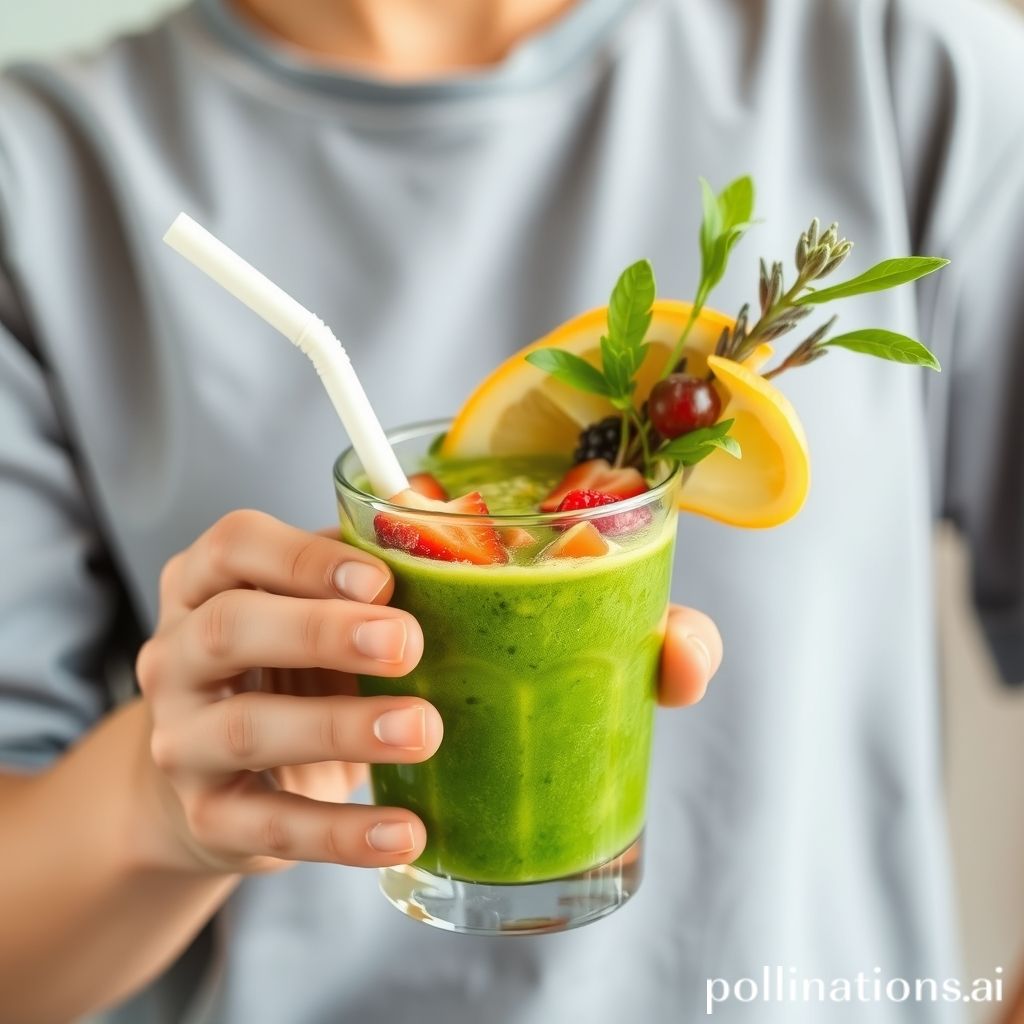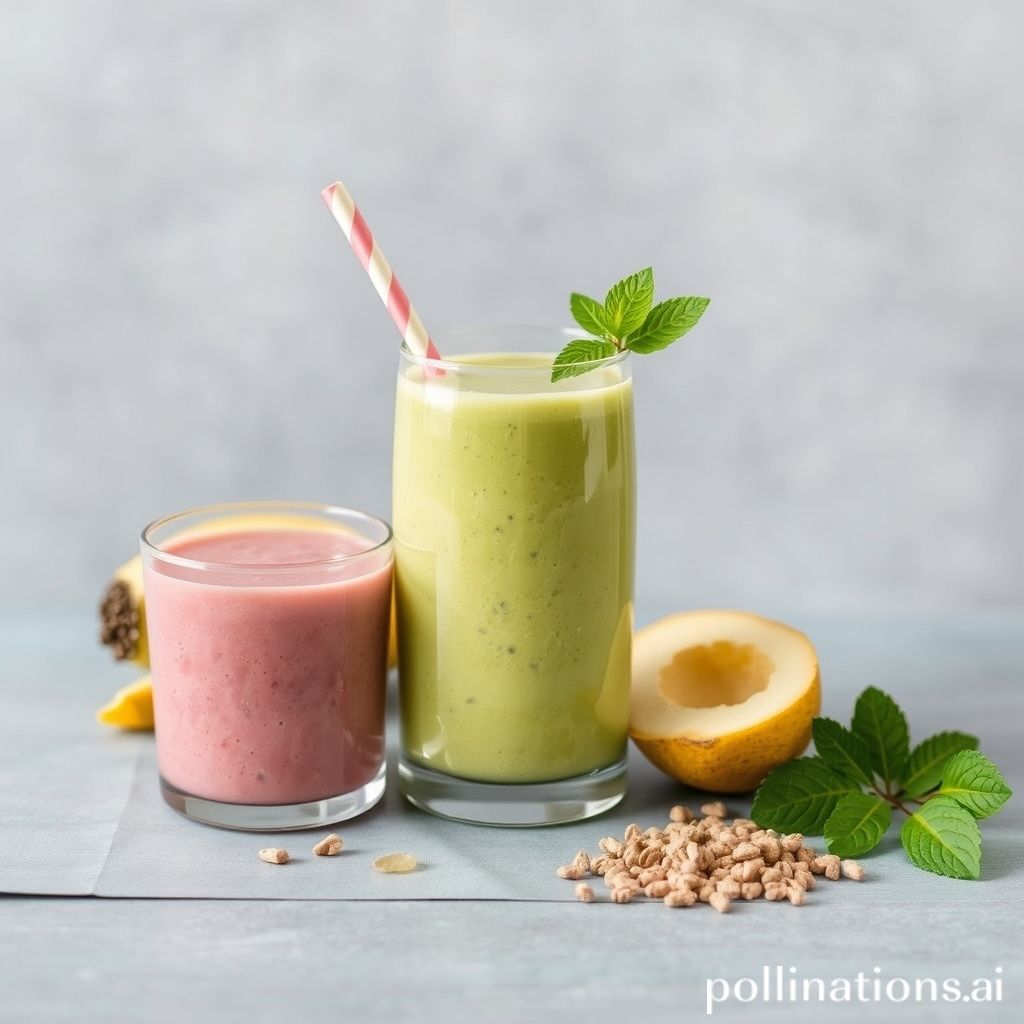Boost Your Recovery with Nutrient-Packed Smoothies for Illness
When illness strikes, people often seek out ways to boost their immune system and nourish their bodies. Many wonder if smoothies, with their nutrient-packed ingredients, can provide the necessary healing benefits.
Are smoothies good when sick? This is a common question that arises, as individuals look for ways to alleviate symptoms In the course of still obtaining vital nutrients. Smoothies offer a convenient and tasty option for those who may have a reduced appetite or difficulty eating solid foods. Packed with vitamins, minerals, and antioxidants, these blended concoctions can provide a nourishing boost to support the body’s recovery process. Let’s explore the potential benefits of incorporating smoothies into a sick-day routine.

Table of Contents
Choosing the Right Ingredients for Healing Smoothies
1. Prioritizing vitamin C-rich fruits and vegetables
When making healing smoothies, it’s important to focus on ingredients that are rich in vitamin C. Vitamin C is known for boosting the immune system and fighting infections. Including fruits like oranges, strawberries, and pineapple, as well as vegetables like kale and spinach, can provide a good amount of this essential nutrient. Vitamin C helps strengthen the immune system, reduce symptoms, and speed up recovery.
2. Incorporating immune-boosting ingredients like ginger and turmeric
Along with vitamin C, it’s beneficial to add immune-boosting ingredients like ginger and turmeric to your healing smoothies. Ginger has anti-inflammatory and antioxidant properties that can help alleviate symptoms such as nausea and sore throat. Turmeric contains curcumin, a compound with powerful anti-inflammatory effects that can reduce inflammation and boost the immune system.
3. Adding protein sources for muscle recovery and energy
When you’re sick, your body needs extra protein for muscle recovery and energy. Adding protein sources like Greek yogurt, almond butter, or high-quality protein powder to your healing smoothies can provide the necessary nutrients. Protein helps repair damaged tissues, support the immune system, and provide sustained energy throughout the day. By including protein in your smoothies, you can speed up recovery and prevent muscle weakness.
Incorporating these key ingredients into your healing smoothies can help provide your body with the necessary nutrients to fight off illness and recover more efficiently. Remember to listen to your body’s needs and adjust the ingredients accordingly. Stay hydrated, rest, and consult with a healthcare professional if your symptoms persist or worsen.
Expert Tips: Boost your immune system with vitamin C-rich fruits, ginger, turmeric, and protein sources like Greek yogurt. Speed up recovery and stay hydrated.Hydration and Smoothies: Staying Hydrated During Illness
1. The Importance of Hydration in Recovery
Proper hydration is crucial for the recovery process when you are sick. It helps replenish fluids lost due to symptoms such as fever, sweating, or vomiting. Staying hydrated aids in flushing out toxins from your body and supports overall wellness.
2. Incorporating Hydrating Ingredients in Smoothies
One way to stay hydrated during illness is by including hydrating ingredients in your smoothies. These ingredients not only provide fluids but also offer essential nutrients. Consider adding:
- Coconut Water: This natural beverage is rich in electrolytes, refreshing, and helps replenish fluids to maintain hydration levels.
- Cucumber: With its high water content, cucumber adds hydration to your smoothie and provides a refreshing taste.
3. Balancing Electrolytes with Smoothie Ingredients
Electrolytes are minerals that help maintain proper fluid balance in your body. When you are sick, electrolyte imbalances can occur due to symptoms like vomiting or diarrhea. Including electrolyte-rich ingredients in your smoothies can help restore balance. Try:
- Bananas: Rich in potassium, bananas are a great source of electrolytes and can help replenish levels in your body.
- Spinach: This leafy green contains magnesium, an essential electrolyte that supports hydration and overall well-being.
| Hydrating Ingredients | Electrolyte-Rich Ingredients |
|---|---|
| Coconut Water | Bananas |
| Cucumber | Spinach |
Smoothies for Respiratory Health: Soothing Ingredients to Relieve Symptoms
1. Incorporating Anti-inflammatory Foods
Smoothies are a great way to incorporate anti-inflammatory foods into your diet when you’re sick. These ingredients can help reduce inflammation in the respiratory system, providing relief from symptoms. Consider adding the following:
- Pineapple: Pineapple is known for its anti-inflammatory properties, thanks to bromelain, an enzyme that helps reduce mucus in the airways.
- Kale: Packed with antioxidants and anti-inflammatory compounds, kale can support respiratory health.
2. Using Herbs and Spices for Congestion Relief
If you’re dealing with congestion, incorporating herbs and spices into your smoothies can provide relief. These ingredients can help clear your airways and promote easier breathing. Try adding:
- Mint: Mint is known for its cooling properties, which can soothe the respiratory system and relieve congestion.
- Eucalyptus: This herb has long been used for respiratory health due to its expectorant and decongestant properties.
3. Including Expectorant Ingredients
Smoothies can also include ingredients with expectorant properties, which help thin and expel mucus from the respiratory system. Consider adding the following:
- Citrus Fruits: Citrus fruits like oranges and lemons are rich in vitamin C and antioxidants, which can help loosen mucus and boost the immune system.
- Honey: Honey is a natural cough suppressant and expectorant that can soothe the throat and relieve coughing.

Digestive-Friendly Smoothies: Nourishing Your Gut During Illness
1. Gentle ingredients for easy digestion:
When you’re sick, it’s important to choose ingredients that are gentle on your digestive system. Incorporating ingredients like bananas or yogurt can help soothe your stomach and provide essential nutrients.
2. Incorporating fiber-rich foods to support a healthy gut:
Fiber is crucial for maintaining a healthy gut, even when you’re not feeling well. Adding fiber-rich foods to your smoothies can support digestion and provide nourishment. Consider including ingredients like chia seeds, flaxseeds, or spinach to boost your fiber intake.
3. Addressing stomach discomfort with soothing ingredients:
Stomach discomfort is a common symptom when you’re sick. Including soothing ingredients in your smoothies can help alleviate this discomfort. Peppermint has been known to ease digestive issues, Whilst chamomile can provide a calming effect on the stomach.
To ensure you’re getting the most out of your digestive-friendly smoothies, it’s important to incorporate a variety of ingredients that promote gut health. Here is an example of a sample recipe that includes some of the mentioned ingredients:
| Ingredients | Instructions |
|---|---|
|
|
Boosting Energy Levels with Nutrient-Dense Smoothies
1. Including Energy-Boosting Ingredients
Pertaining to fighting illness, adding energy-boosting ingredients to your smoothies can make a big difference. Berries like blueberries and strawberries are rich in antioxidants, which help fight inflammation and support the immune system. Spinach is also packed with iron and vitamins, which can increase energy levels and promote overall well-being.
2. Adding Healthy Fats for Sustained Energy
Healthy fats are important for providing sustained energy during sickness and aiding in the recovery process. Avocado, with its monounsaturated fats, not only adds creaminess but also provides a good source of energy. Including a spoonful of nut butter, such as almond or peanut butter, can also add healthy fats and a delicious flavor to your smoothie.
3. Balancing Macronutrients for Optimal Energy Release and Recovery
A well-balanced smoothie should have the right mix of macronutrients, including carbohydrates, proteins, and fats. Carbohydrates are the main source of energy, so adding fruits like bananas or mangoes can give you a quick energy boost. Adding a source of protein, like Greek yogurt or a plant-based protein powder, can help with muscle recovery and prevent muscle loss during illness. Finally, incorporating a small amount of healthy fats, like chia seeds or flaxseed oil, can slow down digestion and provide long-lasting energy.
Conclusion
Smoothies can be a valuable tool in supporting recovery during illness. Packed with essential nutrients, they provide a convenient and easy way to nourish your body when you’re feeling under the weather.
By blending a variety of fruits, vegetables, and other ingredients, smoothies can help boost your immune system, increase hydration, and soothe discomfort. Whether it’s a simple fruit smoothie or a more complex recipe, incorporating these nutritious beverages into your diet can contribute to a faster healing process. So the next time you’re feeling sick, consider reaching for a smoothie to support your body’s recovery.
Frequently Asked Questions about Smoothies for Illness
FAQ 1: Can smoothies replace meals when I’m sick?
Yes, smoothies can be a convenient and nutritious option to replace meals when you’re sick. They are easy to digest and can provide essential nutrients to support your recovery. Make sure your smoothies contain a balance of fruits, vegetables, and protein sources to ensure you’re getting a well-rounded meal replacement.
FAQ 2: What if I have dietary restrictions or allergies?
If you have dietary restrictions or allergies, you can still enjoy smoothies when you’re sick. Opt for ingredients that suit your dietary needs. For example, if you’re lactose intolerant, you can use dairy-free milk alternatives or yogurt substitutes in your smoothies. If you have allergies, avoid any ingredients that may trigger an allergic reaction.
FAQ 3: Can smoothies help with a sore throat?
Yes, certain smoothie ingredients can help soothe a sore throat. Consider adding ingredients like honey, ginger, or warm herbal teas to your smoothies. These ingredients have natural soothing properties that can provide relief for your sore throat.
FAQ 4: Should I avoid dairy in my smoothies when sick?
It depends on your individual tolerance to dairy. Dairy products can sometimes increase mucus production, which may make congestion worse when you’re sick. If you notice that dairy exacerbates your symptoms, it’s best to avoid it in your smoothies. Consider using dairy-free alternatives like almond milk or coconut milk instead.
FAQ 5: Are there any specific smoothie recipes for different illnesses?
Yes, there are specific smoothie recipes that can help with different illnesses. For example, if you have a cold, you can make a smoothie with citrus fruits high in vitamin C. If you have digestive issues, you can try a smoothie with ginger and mint to soothe your stomach. It’s always a good idea to consult with a healthcare professional or nutritionist for personalized smoothie recipes tailored to your specific illness.

